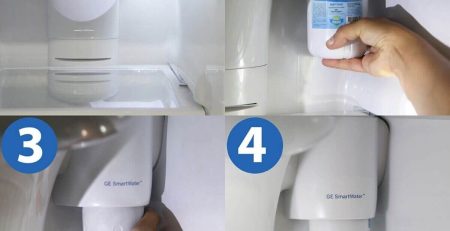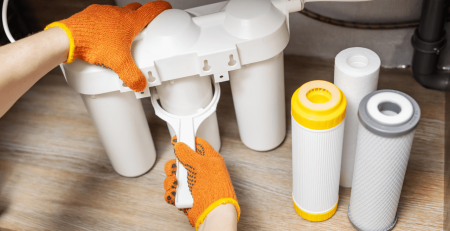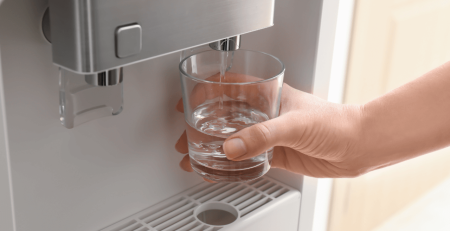How Much Water Should A Child Drink and How to Encourage Consumption
Encouraging Consumption and Keeping Small Ones Hydrated With Quality Water Is Of Paramount Importance
How much water should we drink to keep our bodies healthy? You have probably heard the recommendation that an adult needs around 2 liters a day. This is the Ministry of Health’s guidance for a healthy adult. Some doctors and nutrition experts also argue that, for adults, the ideal is that 35 ml of water be ingested per kilogram of mass. This means that a person who weighs 70 kg should drink 2,450 ml of water.
However, this is a simpler answer than the question actually requires. Several studies relate this need to factors such as weight, lifestyle, eating habits, climate and, of course, age group. Those who practice physical activities, for example, have a greater need to consume water than those who are sedentary, because the practice of exercise makes the person sweat more. The same is true for people who live in warmer regions.
And the Kids?
Given all these variables, it is important to say that a healthy adult, with rare exceptions, remains hydrated simply by consuming water when he feels the need. This is because the human body, as well as that of several animals, has a mechanism that alerts about the water levels necessary to keep its essential functions in full operation.
However, children do not yet have this well-formatted system and the encouragement of an adult is essential to maintain hydration. In addition, it is necessary to remember that, in general, the moments when they need to hydrate the most are precisely the minutes when they are most distracted by their activities.
But after all, how much should a child drink water to stay healthy? To make it easier for us to understand the needs of each age group, we selected the main recommendations based on a table created by the Institute of Medicine (IOM), a scientific organization in the United States:
From 0 To 6 Months
According to the World Health Organization (WHO), until six months of age, the baby should be fed exclusively with breast milk. The advice is not to offer water, teas and any other foods until that age. This is because breast milk has the ideal amount of water and other nutrients and vitamins essential for the proper development of the baby in this age group.
From 7 To 12 Months
From 7 months, as babies already start to eat baby food, it is also necessary to consume water. The daily requirement in this age group is 800 ml to 1 liter, and 600 ml must be in the form of liquids such as water, juice and milk.
From 1 To 3 Years Old
In this period of life, children are already more active and begin to move more easily. That is, after completing the first year of life, the demand for water increases and the minimum volume to be ingested becomes 1.3 liters.
From 4 To 8 Years
With the intensification of physical activities at this stage of life, children tend to lose more fluid through sweating. Thus, the volume of water ingested per day should increase again, this time to at least 1.7 liters.
From 9 To 13 Years
At this stage of life, things start to change a little and new variables start to be incorporated into the calculation. According to the IOM table, the daily water requirement differs between females and males. While girls need to eat at least 2.1 liters, boys need a little more: 2.4 liters.
From 14 To 18 Years
From the age of 14, water intake is basically the same as that of an adult, taking into account a number of factors already described above.
Okay, now that we already know how much water on average a child should consume throughout the day. But what about when they just have no interest in the drink. How to ensure complete hydration? For this, we have selected some precious tips that will help the adult to make the child have a healthier routine:
1. Don’t Feel Sorry for Offering Water Instead Of another Drink
It is not uncommon that, when recommending that adults only offer water as a drink option to their children on some occasions, they receive as a response a lament like ” poor guy”. Well, there is no need to have pity: habits are only acquired through practice. Your little one may find it boring at first, may complain, make a face. But it will get used to the taste buds in a while.
2. Offer Other Drinks as A Reward for Water
Another very efficient tip is to always try to offer water to quench your thirst, not juice. Because once hydrated, the child may even want the juice or soda afterwards, but it will take less … it will not quench your thirst with the sweet drink. Juice and soda should be seen as an occasional treat, not part of every meal. Otherwise, it is difficult to be interested in water!
3. Keep Water Close at Hand
Availability and easy access influence our food choices. Leave a beautiful bottle in a place where she can see and help herself, and in various places in the house. Thirsty child drinks water, believe me!
4. Explain the Change
You may think that children will not understand or care about why they are being encouraged to drink more water. However, they are naturally curious and will be much more open to change if they know their real motivation. Explain that most of the human body is made of water and that to keep it in perfect working order it is necessary to drink pure water.
5. Set an Example
It is useless to ask your child to drink water while the rest of the family does not. From a young age, it is necessary to stimulate, offer and try not to substitute water for something more attractive, such as box juices or even soft drinks if they refuse to drink pure water. They will only learn by observation and will only accept change if they see it in practice, mainly because you have already said how drinking more water is important for health.
6. Record the Evolution.
Children love to see their own progress, from mere strokes on the wall to measure growth to stars of good behavior. Place a table on the refrigerator to mark each cup d ‘will water that children drink. Use colored stickers or markers if necessary. Compare weekly results and set goals.
If you have more than one child at home, use bottles d ‘will colored water to see who’s drinking water and who is not. The important thing is that children turn everything into a very healthy game.
Extra Tip: Always offer quality water, preferably filtered. Drinking a fresh liquid, with no taste or smell, or even without the annoying presence of chlorine, can be quite an incentive for the little ones to feel more stimulated when they hydrate. For 15 years on the market, Filter For Fridge offers the best filter options, with reliability and excellent cost-benefit.





